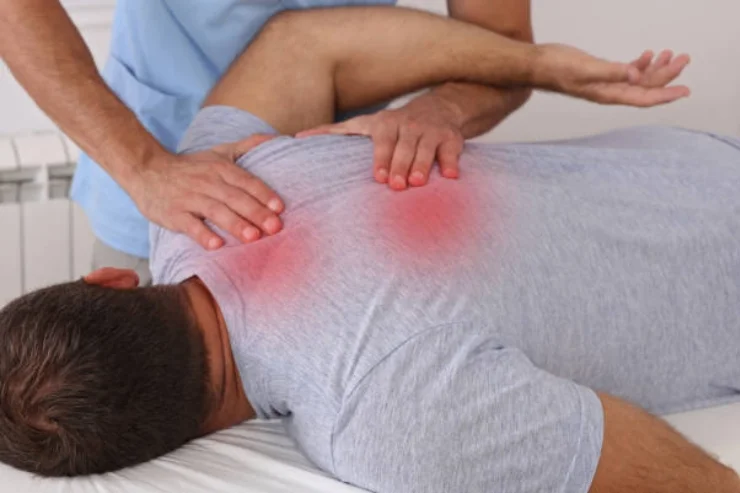
Muscle trigger points and myofascial pain are common causes of chronic pain, often affecting individuals who experience ongoing tension, stiffness, or discomfort in their muscles. A trigger point is a sensitive area within a muscle, often referred to as a “knot,” that can cause localized pain or referred pain, meaning the pain can radiate to other areas of the body. These trigger points develop as a result of muscle overuse, poor posture, stress, or injury, and can cause significant discomfort, affecting daily activities and overall quality of life. Myofascial pain syndrome is a condition where these trigger points cause widespread muscle pain, often accompanied by stiffness, weakness, and reduced range of motion.
Treatment for muscle trigger points and myofascial pain typically begins with conservative methods aimed at relaxing the muscle, reducing pain, and restoring function. Physical therapy plays a crucial role in treating this condition by addressing muscle imbalances, improving posture, and helping to relieve tension. Stretching and strengthening exercises can reduce the occurrence of trigger points and improve flexibility. In addition, manual therapy techniques such as massage, myofascial release, and dry needling are commonly used to release the knots in muscles, increase blood flow, and promote healing. These therapies target the underlying cause of the muscle tightness, providing relief from pain and restoring muscle function.
For patients who do not experience adequate relief from conservative treatments, other options such as injections or medications may be recommended. Trigger point injections, where a local anesthetic or corticosteroid is injected directly into the trigger point, can offer quick and effective pain relief. Medications such as muscle relaxants or anti-inflammatory drugs may also be used to reduce muscle spasms and inflammation. Additionally, newer therapies such as platelet-rich plasma (PRP) therapy may be beneficial for individuals with chronic myofascial pain. PRP therapy utilizes the body’s own platelets to promote tissue healing and reduce inflammation, offering a non-surgical option for those with persistent muscle pain. With a comprehensive treatment plan, most patients with muscle trigger points and myofascial pain can experience significant improvement in their symptoms and regain normal muscle function.
Rishi’s Indo American Pain Center, a premier destination for comprehensive orthopedic solutions and advanced pain management therapies.